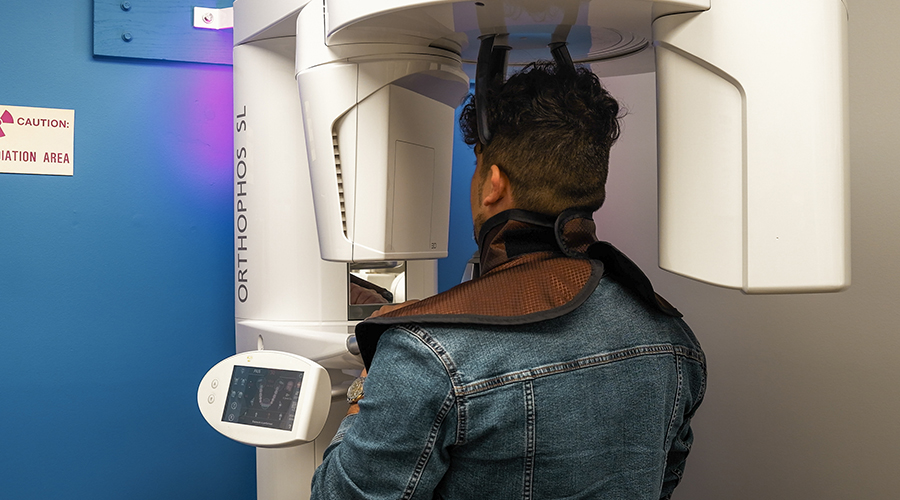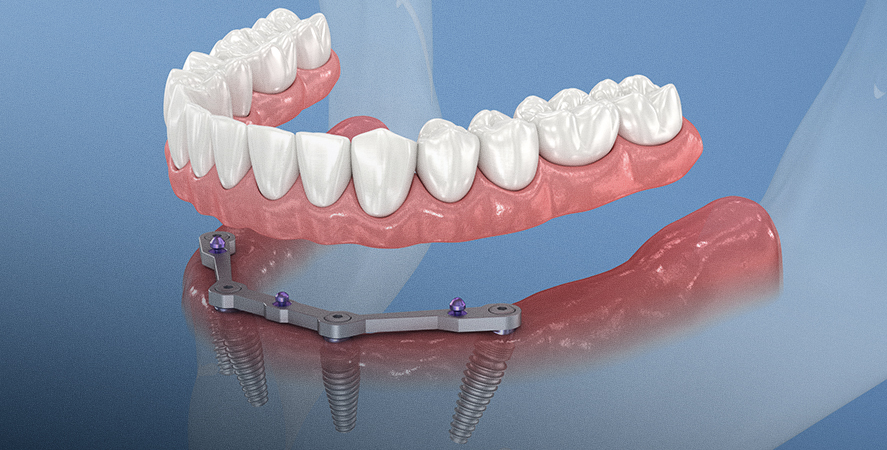
Stronger, Healthier Smiles Full Mouth Reconstruction in Northern Kentucky
Heritage Dental Center, Northern Kentucky's premier full mouth reconstruction specialists, offers advanced restoration services to transform your smile. Our expert team provides personalized solutions for tooth damage, missing teeth and more, using state-of-the-art techniques to restore full oral functionality. Schedule a consultation today to achieve a healthy, confident smile.

4 Convenient Locations for Dental Reconstruction in Northern Kentucky

Common Reasons for Reconstruction
A full mouth reconstruction addresses a variety of dental problems, impacting both the function and appearance of your teeth. This procedure is commonly recommended for individuals facing multiple oral health concerns, such as:
- Extensive Tooth Damage: Extensive decay or injury affecting several teeth, requiring repair or replacement.
- Missing Teeth: Gaps from lost teeth needing replacement for function and appearance.
- Bite Misalignment: Issues with how teeth come together, leading to discomfort, wear or difficulty chewing.
- Severe Tooth Wear: Worn-down teeth from grinding, clenching or aging, impacting chewing and aesthetics.
- Gum Disease: Advanced periodontal problems damaging gums and supporting structures, requiring restoration.
Types of Dental Reconstructions
- Implant-Based Reconstruction: Using dental implants to replace missing teeth, restore bite function and enhance aesthetics.
- Crown and Bridge Reconstruction: Replacing damaged or missing teeth with crowns and bridges to restore functionality and appearance.
- Orthodontic Reconstruction: Using braces or clear aligners to correct misalignment and bite issues before proceeding with other restorative procedures.
- Veneers and Bonding Reconstruction: Cosmetic procedures like veneers or bonding to improve the appearance of teeth affected by wear, discoloration or misalignment.
- Gum and Bone Reconstruction: Includes procedures like bone grafting or gum grafting to restore the foundation of the teeth and support implant placement.
- Full Denture Reconstruction: For patients with extensive tooth loss, dentures (either full or partial) can be used to restore the ability to chew and speak comfortably.
Are Retainers Necessary?
Yes, retainers are necessary after orthodontic treatment to keep your teeth in their new positions. Without them, teeth can gradually shift back to their original misalignment, potentially undoing the progress made during braces or aligner treatment. Wearing a retainer as directed by your orthodontist helps maintain the results of your treatment.
Who Is a Good Candidate for Full Mouth Reconstruction
- Have extensive tooth damage due to decay, trauma or wear.
- Are missing multiple teeth, affecting bite and function.
- Suffer from bite misalignment or jaw issues causing discomfort or difficulty chewing.
- Experience severe tooth wear from grinding, clenching or aging.
- Have advanced gum disease and damaged tooth support structures.
- Seek a complete smile transformation for aesthetic or functional improvement.


Expert Full Mouth Restoration in Northern Kentucky
Wisdom teeth removal is a common procedure often recommended when third molars become impacted, leading to pain, infection or other complications. Teeth frequently lack enough space to emerge properly, causing crowding or misalignment of surrounding teeth. If left untreated, wisdom teeth can lead to cysts or damage to the jawbone. Removing them early, typically in the late teens or early twenties, can help prevent more serious dental problems and promote a faster, easier recovery.
Important Things to Know About Recovery
- Arrange transportation home after the procedure.
- Rest with the head elevated to minimize bleeding.
- Change the gauze as needed when soaked.
- Follow pain management instructions for medications and ice.
- Contact us if bleeding persists beyond 24 hours.
- Stick to soft foods and avoid smoking or using straws.
What to Expect During Full Mouth Reconstruction
Full mouth reconstruction is a comprehensive process designed to restore both the function and appearance of your smile. Here’s what you can expect during treatment:
- Initial Consultation: A comprehensive exam and discussion of your goals, followed by diagnostic imaging to assess your oral health and create a personalized treatment plan.
- Preparation: This step may involve tooth extractions, gum treatments or addressing any underlying issues like infection before starting the restoration process.
- Restoration Planning: Depending on your needs, treatments may include crowns, bridges, implants or veneers, designed to restore function and aesthetics.
- Treatment Phase: The procedure may take several appointments, during which your dentist will carry out the necessary restorations, including implants, crowns or bridges.
- Follow-Up and Recovery: After the procedure, you’ll attend follow-up visits to ensure proper healing, address any concerns and finalize the look and feel of your new smile.
Full Mouth Reconstruction FAQ
How long does full mouth reconstruction last?
With proper care, materials like implants, crowns and bridges can last 10 to 20 years or more, depending on maintenance and oral hygiene.
How do I know if I need full mouth reconstruction?
It's recommended for those with multiple dental issues like extensive tooth damage, missing teeth, bite misalignment or gum disease. Your dentist will assess your oral health and recommend the procedure if necessary.
Can full mouth reconstruction be done in one visit?
No, it typically requires multiple visits over several months due to the combination of procedures involved, such as implants, crowns and orthodontics.
What materials are used in full mouth reconstruction?
Materials include ceramics, porcelain and zirconia for crowns and veneers, titanium for dental implants and metal alloys or porcelain for bridges.
Will I experience pain during or after full mouth reconstruction?
Local anesthesia or sedation is used during procedures and mild discomfort or swelling may occur afterward, manageable with pain medication.
5-Star Full Mouth Reconstruction Dentist
Join our satisfied patients!

Plan Your Visit
New Patients Welcome!
Experience exceptional dental care at one of our 4 Northern Kentucky locations. We warmly welcome new patients into our practice! Contact us today.


